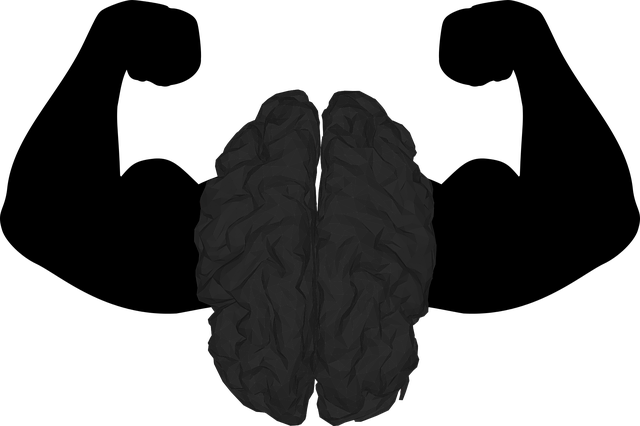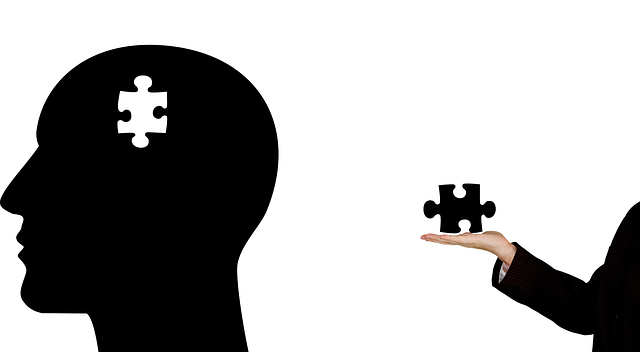Depression, a neurodisorder impacting daily life, requires early recognition and management. Englewood Neuro Disorders Therapy (ENDT) offers comprehensive prevention and treatment through advanced neurotherapy targeting mood regulation, along with compassionate support to reduce stigma. ENDT emphasizes holistic strategies like exercise, social connections, mindfulness meditation, and trauma support. Professional help is recommended for persistent symptoms, with tailored CBT, mindfulness, and burnout prevention for healthcare providers.
Depression is a prevalent yet complex condition, affecting millions globally. This article explores comprehensive strategies to prevent and manage this mental health challenge. From understanding the warning signs of depression to discovering the benefits of Englewood Neuro Disorders Therapy, we provide insights into effective lifestyle changes, resilience-building techniques, and when to seek professional help. By integrating these approaches, individuals can foster a healthier mindset, enhance well-being, and effectively navigate life’s challenges.
- Understanding Depression: Recognizing the Red Flags
- The Role of Englewood Neuro Disorders Therapy in Prevention
- Lifestyle Changes for a Healthier Mindset
- Building Resilience: Coping Strategies and Support Systems
- Professional Help: When and How to Seek Assistance
Understanding Depression: Recognizing the Red Flags

Depression is a complex neurodisorder that significantly impacts an individual’s daily functioning and overall well-being. Recognizing the signs and symptoms early on is crucial in preventing and managing this condition effectively. At Englewood Neuro Disorders Therapy, we understand the importance of identifying depression at its inception to provide appropriate crisis intervention guidance.
Red flags include persistent feelings of sadness, hopelessness, or a marked loss of interest in activities once enjoyed. Changes in appetite, sleep patterns, energy levels, and concentration are also common indicators. Individuals experiencing depression may withdraw from social interactions, exhibit poor self-care practices, or struggle with stress management, further exacerbating their symptoms. Early recognition allows for timely support, whether through professional therapy, lifestyle adjustments, or a combination of both.
The Role of Englewood Neuro Disorders Therapy in Prevention

Englewood Neuro Disorders Therapy (ENDT) plays a pivotal role in depression prevention by addressing fundamental causes rooted in brain function and psychology. Through advanced neurotherapy techniques, ENDT targets specific neural pathways associated with mood regulation, helping individuals regain control over their emotional states. This approach is particularly effective for those who might be at risk due to past traumatic experiences or genetic predispositions.
Moreover, ENDT integrates compassion cultivation practices, a component often overlooked in mental illness stigma reduction efforts. By fostering empathy and understanding, this therapy creates a supportive environment that encourages individuals to seek help without fear of judgment. Coupled with thorough risk assessments for mental health professionals, which identify potential triggers and vulnerabilities, ENDT offers a holistic strategy to prevent and manage depression, ultimately enhancing overall well-being.
Lifestyle Changes for a Healthier Mindset

Adopting a healthier lifestyle can significantly contribute to depression prevention and overall well-being. Regular exercise, for instance, boosts mood by releasing endorphins, which are natural mood lifters. This simple yet powerful tool can be a game-changer in managing symptoms of depression. Moreover, engaging in activities that foster social connections and a sense of belonging can provide much-needed support during challenging times.
At Englewood Neuro Disorders Therapy, we emphasize the importance of self-esteem improvement and stress reduction methods. Our expert therapists guide individuals through crisis intervention techniques, empowering them to navigate life’s hurdles with resilience. By incorporating these lifestyle changes into daily routines, one can create a buffer against depression and cultivate a more positive mindset.
Building Resilience: Coping Strategies and Support Systems

Building resilience is a key component of depression prevention, offering individuals the tools to navigate life’s challenges with greater ease. Coping strategies play a significant role in this process. Engaging in activities like mindfulness meditation, regular exercise, or creative outlets can help regulate emotions and foster a sense of calm. These practices empower individuals to manage stress and difficult feelings before they escalate.
At Englewood Neuro Disorders Therapy, we emphasize the importance of support systems in building resilience. Connecting with loved ones, joining community groups, or seeking professional help from a healthcare provider trained in cultural competency can provide much-needed emotional support. Trauma support services are also invaluable for individuals who have experienced adverse events, as these services address underlying emotional wounds and promote healthy coping mechanisms.
Professional Help: When and How to Seek Assistance

Many individuals struggling with depression may benefit from seeking professional help, and it’s essential to recognize when this step is necessary. If you’ve been experiencing persistent feelings of sadness, loss of interest in activities once enjoyed, changes in appetite or sleep patterns, fatigue, or difficulty concentrating for more than two weeks, it might be time to consider therapy. Englewood Neuro Disorders Therapy offers specialized support tailored to individual needs, addressing underlying causes and symptoms.
Professional therapists provide a safe space to explore emotions and thoughts, offering evidence-based practices such as cognitive-behavioral therapy (CBT) and mindfulness techniques. For healthcare providers who may also battle burnout, cultural sensitivity in mental healthcare practice is crucial, ensuring a supportive environment for diverse patient populations. Additionally, developing a self-care routine, incorporating regular exercise, balanced nutrition, and stress management techniques, can be integral to depression prevention strategies alongside engaging in Burnout Prevention Strategies for Healthcare Providers.
Depression prevention is a multifaceted approach, and integrating strategies from various sections can significantly enhance mental well-being. While understanding depression and recognizing red flags is crucial, the article highlights the unique benefits of Englewood Neuro Disorders Therapy in addressing underlying causes. Lifestyle modifications, building resilience, and supportive networks play vital roles in fostering a healthier mindset. Moreover, knowing when to seek professional help is essential. By combining these strategies, individuals can effectively navigate and prevent depressive episodes, leading to improved quality of life.














